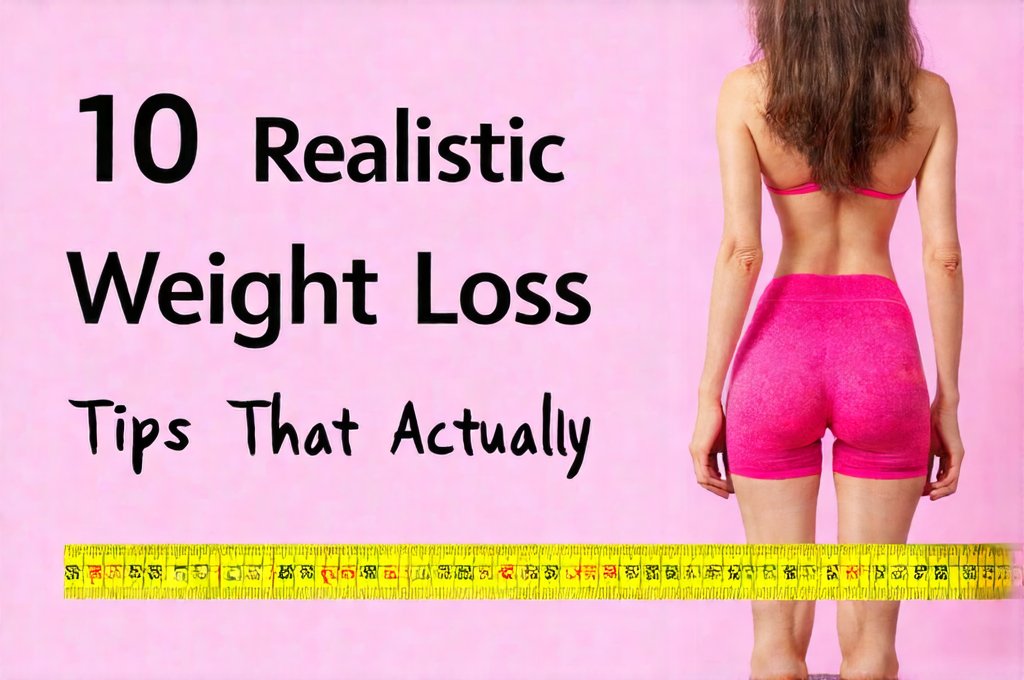Weight loss is a journey many embark on, often fueled by aspirations for better health, increased confidence, and improved well-being. It’s a process that can feel overwhelming with countless diets, trends, and conflicting information vying for attention. The truth is, sustainable weight loss isn’t about restrictive deprivation or quick fixes; it’s about adopting realistic, achievable lifestyle changes that you can maintain long-term. This article will cut through the noise and provide ten practical tips grounded in behavioral science and nutritional understanding—tips that aren’t just theoretically sound but demonstrably effective for a wide range of individuals.
The challenge isn’t necessarily knowing what to do, but rather consistently doing it. Many people understand the principles of healthy eating and exercise, yet struggle to integrate them into their daily routines. This is where the “realistic” part comes in. We’ll focus on small, incremental changes that build upon each other, minimizing feelings of overwhelm and maximizing your chances of success. Remember, this isn’t about perfection; it’s about progress. It’s about building habits that support a healthier, happier you, not just for today, but for the years to come.
Prioritize Protein & Fiber Intake
Protein and fiber are two nutritional powerhouses when it comes to weight management. They both contribute significantly to feelings of fullness, helping you eat less overall without feeling deprived. Protein is essential for building and repairing tissues, while also requiring more energy for digestion than carbohydrates or fats – a process known as the thermic effect of food. Fiber slows down digestion, leading to prolonged satiety and better blood sugar control. Incorporating sufficient amounts of both into your diet is crucial.
Consider this: a meal consisting primarily of refined carbohydrates will likely leave you feeling hungry again relatively quickly, potentially leading to snacking. However, a meal with lean protein (like chicken or fish) paired with fiber-rich vegetables and whole grains will keep you satisfied for hours. This isn’t about eliminating carbs entirely; it’s about making smarter choices within each food group.
Here are some easy ways to increase your protein and fiber intake:
– Add a handful of berries to your breakfast oatmeal.
– Choose lean protein sources like chicken breast, turkey, or fish over processed meats.
– Swap white bread for whole-wheat bread or quinoa.
– Include at least one serving of vegetables with every meal.
– Snack on nuts, seeds, or Greek yogurt instead of sugary treats.
Mindful Eating Practices
Mindful eating is about paying attention to your food and the experience of eating – without judgment. It’s a powerful tool for weight loss because it helps you become more aware of your hunger cues, portion sizes, and emotional triggers related to food. Many people eat on autopilot, often finishing meals without truly registering how full they are. This can lead to overeating and unnecessary calorie consumption.
To practice mindful eating:
1. Eliminate distractions during meal times (turn off the TV, put away your phone).
2. Eat slowly and savor each bite, focusing on the flavors and textures.
3. Pay attention to your body’s hunger and fullness signals. Stop when you’re comfortably full, not stuffed.
4. Ask yourself why you are eating – are you truly hungry, or are you eating out of boredom, stress, or habit?
This isn’t about restriction; it’s about awareness. It allows you to make conscious choices about what and how much you eat, rather than reacting impulsively to cravings or emotional states. Over time, mindful eating can transform your relationship with food, leading to more balanced and satisfying dietary habits. It’s a skill that requires practice, but the rewards are well worth the effort.
The Power of Hydration
Water often gets overlooked in discussions about weight loss, yet it plays a surprisingly significant role. Drinking water before meals can help you feel fuller, leading to reduced calorie intake. It also supports metabolic processes and helps your body function optimally. Many times, we mistake thirst for hunger, leading us to unnecessarily consume calories when all our bodies really need is hydration.
Aim to drink at least eight glasses of water per day, but adjust based on your activity level and climate. Carry a reusable water bottle with you as a constant reminder to stay hydrated. Infuse your water with fruits or herbs (like lemon, cucumber, or mint) for added flavor if you struggle with plain water. Staying adequately hydrated is one of the simplest and most effective things you can do to support your weight loss efforts.
Incorporate Regular Physical Activity
While diet plays a major role in weight loss, physical activity is equally important – not just for burning calories but also for overall health and well-being. Exercise improves cardiovascular health, strengthens muscles, boosts mood, and reduces stress. You don’t need to commit to intense workouts at the gym; find activities you enjoy and can realistically incorporate into your routine.
This could include brisk walking, dancing, swimming, cycling, or hiking. Aim for at least 150 minutes of moderate-intensity aerobic exercise per week, along with strength training exercises twice a week. Start small if you’re new to exercise – even ten minutes of activity is better than none. Gradually increase the duration and intensity as your fitness level improves. Consistency is key. Remember that movement isn’t limited to structured workouts; incorporate active choices into your daily life, such as taking the stairs instead of the elevator or walking during your lunch break.
It’s important to remember that weight loss is a personal journey, and what works for one person may not work for another. These ten tips are designed to provide a solid foundation for sustainable change, but feel free to adapt them to fit your individual needs and preferences. Be patient with yourself, celebrate small victories, and don’t give up if you experience setbacks—they’re a natural part of the process. The goal isn’t just to lose weight; it’s to create a healthier, happier lifestyle that supports long-term well-being.




